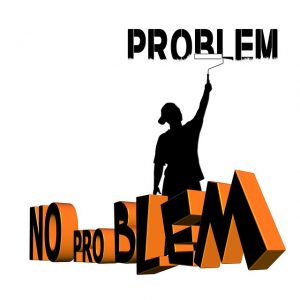
by Dave Cooper | Aug 15, 2018 | A2R, Building Recovery, Method
 I have been very busy recently filming my online course (Building Recovery) and finishing my book (of the same name). So I was wanting to get back to writing my Blog and thought to myself “what are the core principles that inform all my work with clients who want to recover from addictive lifestyles”? So I wrote down everything that informed my work, basically things that I would not contradict or stray from in any situation.
I have been very busy recently filming my online course (Building Recovery) and finishing my book (of the same name). So I was wanting to get back to writing my Blog and thought to myself “what are the core principles that inform all my work with clients who want to recover from addictive lifestyles”? So I wrote down everything that informed my work, basically things that I would not contradict or stray from in any situation.
This could be valuable to you in your striving for recovery for two reasons. Firstly because I believe these principles are valuable for everybody, not just for addicted people. This is because, like all the rest of my teaching are about personal growth. Secondly because they will provide an overview of how I have learned to approach this work. So reading about them will help you to understand the coherence in this approach. How it all fits together as a useful whole. This will help you to understand why I sometimes suggest certain things that might not be obvious to you.
So these are the principles my recovery building stands on. If you include these principles in your recovery they will provide you with the best foundation and serve you well.
The Core Principles
So what are the core principles? What is it that I could not do without in this work? You will notice a theme in the following list. It is a theme that speaks to my beliefs and experience over the last thirty years.
The only way authentic recovery is to outgrow your problems
My belief is that you cannot recover by improving yourself in the place you are in. You must outgrow your difficulties. You must be lifted higher. Psalm 40 says “I cried out to you in my distress and you inclined you ear to me. You lifted me out of the miry clay and placed my feet upon a rock”. Here is a list of things that will be part of this series.
1 – Harmony
No I’m not offering singing lessons! Although the way music works in creating a beautiful chord through different harmonising notes is a great start. So the actual principle here is something like ‘stay on your good side’. So this is about inner harmony not outer harmony (often confused). The reason it makes it onto my list of core principles is because we simply cannot move (grow) whilst we are in disharmony.
2 – Isolation
Yes I know, we always knew that isolation was bad! The point here is that all the most recent research is showing us that it’s even worse than we thought. So the principle here is something like ‘develop relationships with living things (people preferably)’. Coming out from isolation (inside) is one of the most challenging things we can do and so it needs preparation and a deep level of acceptance that tings like this are journeys ‘aims’ rather than quick fixes.
3 – Growth
When we are threatened one of the most common aspects of our survival strategies is to stop growing. To avoid challenges and to ‘shut down’. Addiction becomes one of the ways we can do this and develop a ‘Groundhog day’ type of life. It makes sense then to see recovery as a reversal of this process. So the principle here is something like ‘have the right aims’. So often addicted people start with the latest problem such as “I have no money” or “I need to stop taking drugs”. These are usually ‘post addiction problems’ when we should be concentrating on the ‘pre addiction issues’.
4 – Self management
My work in this field took a huge leap forwards when I took on board the complex nature of being a human being! I often remind my clients that when we say ‘I’ we are using a complex statement! So the core principle here is something like ‘you are always working with what is between your ears’! To start using our daily experiences and challenges to grow into our recovery we need to understand what is happening during difficult moments and the relationship between our brain and our mind.
So there it is. Take the time now to study the episodes in this series. Starting with number one HARMONY.
 HARMONY
HARMONY
Let’s start with a definition before we go on to talk about why it’s such an indispensable part of authentic recovery. Harmony is defined as ‘the combination of simultaneously sounded musical notes to produce a pleasing effect’. Cambridge Dictionary.
It’s this idea of difference in the sounds that is so important. Notice that harmony is not lot’s of same sounding notes. A bunch of ‘E’ notes may make a nice sound bit they do not make a chord.
If you have been thinking of yourself in the most obvious and simple way then your behaviour and thoughts will often make you feel crazy! Every time you contradict yourself in your behaviour speech or attitude you will be wondering “how crazy am I, I mustn’t let anyone know”. Let me reassure you. Contradictory behaviour does not mean that you are crazy! It’s a matter of understanding how complex you are.
I would say that ‘I’ is shorthand. Short and convenient for everyday life. “I did this” “I want that” makes sense. But this is not sufficient for a rich understanding of what it means to be human. In order to manage yourself well and grow into a full recovery you must start to take into account the fact that you are a complex package of different, sometimes contradictory ideas or ‘parts’. Did you ever say “I’m in two minds about that”. Or “there’s a part of me that just won’t let go”. These are examples of this complexity. You are going to learn how to first take this complexity into account and then use it in your recovery journey.
Team YOU!
A great team creates a great harmony. Look at this picture. Imagine if they all turned up and wanted to paint the boards. Nothing would be achieved. Of course they all have the same ‘big picture’ but it is the harmony created when all the different skills are used to achieve an agreed upon goal that makes them a great team.
Conflict
I want to talk about what happens when you think too simply about yourself. You have an aim in your mind, which is to stop drinking let’s say. So far so good. At some point other thoughts turn up. Thoughts that say ‘why bother. No one will appreciate it’. or ‘No one will know if you drink on your own’. You can add some of your own. The point is these thoughts are not in agreement with your intention to stop drinking. Did you ever ask yourself why would such thoughts exist? If you have decided to do something why would you not be completely behind this decision?
Internal opposition to our own decisions in the form of temptation and compulsion, fear and selfish need are so common in our experience that we stop questioning the reason for these opposing ideas or think about why they exist. Often our reaction to these voices is to fight them.You feel a pressure to appear ‘normal’ and so try to bully or hide these things so as not to appear strange or abnormal.
One more reason we avoid doing something about this state of affairs is that we are much more focused on what can be seen than what is hidden from view. Trust me on this one little thing, it is the things that are hidden from view that are the most important and that will offer the most potential for growth and change.
Stop fighting
In the fourth episode in this series (self management) I will go into more detail about the nature of these ‘voices of influence’ but for now let’s stay with this theme of creating harmony through removing conflict. When we take the ‘fighting’ option we are led into conflict, but it’s okay because it’s conflict for a good reason, right? There are so many articles and books about how to win and how to be strong and how to fight that you may think of it as an obvious thing to do. So you try to banish the negative thoughts or to aggressively replace them with ‘positive affirmations’.
Sound like you? Let me ask you something, did it work? The fact that you are reading this is pretty good evidence that it didn’t. Let me tell you something. If you want these inner negative voices to get stronger, keep exercising them. It’s your resistance to them that is making them stronger. You need to harmonise not argue.
Don’t make the mistake of confusing your relationship with yourself with your relationship with others. These books are mainly talking about our relationships with others not ourselves. It may seem obvious to you that the same approach will work for the relationship with your self. It won’t. You see I fully agree that conflict and it’s resolution is the key to personal growth (in our relationships with others). Please click this link for my take on this. But your relationship with yourself needs a different approach.
So in relationships with other people difficulties are good. The problem is that things are very different on the inside. When it comes to yourself conflict is not the way forwards. I always remind my clients that “Your mind runs your life…. on licence from your brain”. So when you are dealing with any ‘part’ of you are dealing with a child. But a child that is much stronger than you! Overpowering it is not an option! Remember your brain can shut down your mind but your mind cannot shut down your brain!
Acceptance – the key to growth
I want to talk about a word now that has got an increasingly bad press lately. Acceptance. You know acceptance is a fantastic thing! It is the key to personal growth and development, improved relationships and greater effectiveness. But it has become known as a bad thing. Somehow we have managed to turn one of the most valuable things in our resources into an unclean unwanted thing. It is now thought of as something akin to a doormat. “I suppose I’ll just have to accept it” is nothing more than a sad sounding capitulation to our modern ears.
I want you to know that acceptance is one of the most valuable materials you can build your recovery with. Let me tell you why it is so valuable by telling you what acceptance isn’t! Acceptance isn’t agreement. When we accept something we are not saying we agree with it. We are not saying it is correct. Or that it’s permanent. Not that we don’t want to or can’t do anything about it. We are simply saying that it’s real.
You should accept something because it’s real.
The power of acceptance is felt once we have accepted something. You don’t overpower it, you don’t destroy it. You don’t disprove it. And yet, somehow you get past it!
Acceptance versus knowledge
If you have viewed my post on this subject you will have more detail by now but I still want to say something about the difference between just knowing something and truly accepting it. Knowledge is a concrete thing. It can be a block to change in it’s brutal presence. we can hate something that we know is true but we can’t change it! Acceptance is much deeper than knowledge. It is a spiritual thing not a scientific thing. When we know something we cannot change it, when we accept something we transcend it! The alcoholic who ‘knows’ he is alcoholic carries on drinking. The alcoholic who ‘accepts’ he is alcoholic stops drinking. You will see very different behaviour resulting from acceptance than from knowledge.
When I run my workshops I show an image of two men wrestling. I ask the participants to tell me what is happening. They tell me that there are two men wrestling, not surprising right? I tell them to look again and see two men who are stuck together. Neither man can leave, move, or grow whilst they are still wrestling! Again this is not about agreement or being stuck with something. It is about being free of something!
I want you to start practising acceptance as a way of life. Try saying to yourself “just for right now, this is how I feel” and “just for today, this is what is happening”. Try “I accept that I just thought that” and “I accept that a part of me does not want to stop”. Look for changes in your behaviour and different reactions to situations as you develop this acceptance habit. Remember you are not trying to change your behaviour, that just gets you back to fighting. Changed behaviour is evidence of a changed relationship with yourself.
What would your last words be?
If you had one chance to say something valuable to those you love. Only one chance to leave a thought with them that would be the last word, the last opportunity to offer advice. What would it be? What is the most important thing you could say to someone? If there was one last chance.
This was the position Jesus was in on the night he was to be crucified. His words to us are found in John 17. He first prays for himself and then following prayers for his disciples he prays for you and me! Yes, all that will follow, that’s us! So what is this last prayer. What is it that Jesus himself knows to be the most important thing he can leave us with. The most important thing to pray for. Is it that we should build great big churches? That we should convert millions? Or it that we should raise large sums of money? It is none of these things. It is harmony. Harmony is his prayer for us.
Now I have heard this harmony preached and taught as harmony between us as people but this is not what is meant. Listen to Jesus words as he describes the harmony or unity he is talking about “that all of them may be one, Father, just as you are in me and I am in you. May they also be in us so that the world may believe that you have sent me”. He is talking about internal harmony. He is talking about our relationship with ourselves. Let me give you one more example.
In Mark 3:25 Jesus says 25 If a house is divided against itself, that house cannot stand. Again this is often taken to mean the Church or our relationship with others which of course is important but listen what He says in the next verse. 26 And if Satan opposes himself and is divided, he cannot stand; his end has come. Clearly placing his words in the context of personal harmony and unity.
Whether you are a Christian or not, these words are a powerful reminder of the importance of personal harmony.
Be a good friend to yourself
One last word on internal harmony. Be a good friend to yourself. I know what it’s like to hate yourself. When I first got clean I couldn’t look at myself in the mirror to get a decent shave. To create inner harmony you have to be a good friend to yourself. You will not be effective in anything you try to do as long as you are not helping yourself. No matter what you have done or said. No matter how wrong it was. Accept it. I am not suggesting that you not be responsible for yourself I am suggesting that you take the best stance to grow out of it.
Here is a simple method you can try to get around self hatred. Imagine a family member or best friend telling you their problems. Except they are telling you your story, exactly the same as your experience. What is your advice for them? What would you say? Now act on that advice yourself, no matter how difficult or awkward it seems. You have just tricked yourself into giving you your best advice!
I will be doing three more episodes on this subject of core principles. Speak soon

by Dave Cooper | Aug 3, 2017 | A2R, Method
Calling something good that is harmful to you
 This is the third article in the series – Addiction as an inappropriate relationship. In this final post we will be looking at one of the worst aspects of the inappropriate relationship. Namely that it looks good but is really bad. Inappropriate relationships are always presented as something good healthy or wholesome. In fact it is one of the most insidious things about them.
This is the third article in the series – Addiction as an inappropriate relationship. In this final post we will be looking at one of the worst aspects of the inappropriate relationship. Namely that it looks good but is really bad. Inappropriate relationships are always presented as something good healthy or wholesome. In fact it is one of the most insidious things about them.
Always connected with something desirable like love or spiritual enlightenment, inappropriate relationships are at best cheap imitations of these things. Deliberately harmful and deceitful, they lead the innocent into damaging and abusive places.
The worst inappropriate relationships always involve the innocent or vulnerable. Young people who are easily tempted with things they cannot get for themselves like a ride in a car or a bag of sweets. Addiction is similar in that the temptation is always about now! So it appeals to the child in us. It always offers instant gratification. There is never any thought or promise for the future, only now.
Big picture versus little picture

Large Cinema screen

Small picture view
This one of the methods I use frequently with my groups. The idea of small and large ‘screens’ as a way of understanding how you are ‘seeing things’ right now. It’s also one of the main reasons why personal growth, development and maturity are the answers for you as an addict. The more mature you become the more your view is ‘big picture’ not the ‘small picture’ of a child.
If when the temptation of this inappropriate relationship came you could summon up a picture even a tiny bit bigger than ‘right now’ you would be very likely to say NO THANKS. Even considering tomorrow morning would probably be enough, but in the past this has been beyond you. Your addictive relationship is only attractive in the ‘right now’ of the ‘small picture’ view.
Avoiding the ‘quick fix’ by changing your ‘screen’
Of course there are times when it is appropriate for you to go the other way and I teach this in the group I run. Ask yourself now is your problem in the past, future or present? Where is the thing that is making you feel bad? If it is in the past or the future it is a ‘big picture’ problem and you must shift to a ‘small picture view’. You do this by bringing yourself into the moment and asking yourself “what am I actually doing right now”? If it’s making a cup of tea, then make the best cup of tea you can and concentrate on it. Small picture!
If your issue is in the present then you must shift to a ‘big picture view’, in which you will feel better and gain some perspective. This is why when you are first presented with the substance that later leads to addiction it appears to be the perfect answer! Instant bliss! You can be transported to a place that has no problems or bad feelings associated with it for just a little money. As long as your health and money last you really have what appears to be the perfect solution to your issues. The perfect answer but only in a small picture view!
I was no different from you in my youth. I felt terrible and the thought of drinking and smoking weed gave me an instant ‘brain shift’ and better feeling. As I got older it was worse! Now I wanted to feel good not only without earning it, but in spite of all the wrong things I was now doing! So because you are doing the same this means that your ‘perfect’ answer is now somewhat more tarnished than when you were young. But it still offers you a powerful relief from the bad feelings you have.
Defining the appropriate relationship
We hear so much about the inappropriate relationship these days. A simple search on the internet brings up heaps of material on Teacher – Student relationships, incestuous relationships, as well as the more common extra-marital relationships.
The more subtle forms of inappropriateness such as the controlling partner and the psycho boss are harder to find but are still plentiful if you search a bit harder. When it comes to things that are more challenging to define such as manipulative friends and people who are over keen to be in the spotlight of leadership or be ‘running things’ there is a lot less information. It is here that the boundaries get a little blurred.
What if we started at the other end? What if we started by defining what makes an appropriate relationship? This is problematic because it is much harder to generalise around health than it is around the unhealthy. Here are a few things that appropriate living relationships include. Along with some links to further reading.
Equality – except where the power differential is written into the relationship such as counselling or a work hierarchy.
http://www.goodtherapy.org/blog/relationship-fairness-what-a-50-50-balance-means-0826134
Dignity – Allowing the other personal agency and a freedom to make their own choices.
https://www.psychologytoday.com/blog/dignity/201304/what-is-the-real-meaning-dignity-0
Boundaries – Appropriate relationships have boundaries that are well formed and understood.
http://www.sharonhersh.com/2015/06/what-is-an-inappropriate-relationship/
Recovery as an appropriate relationship!
When you make a decision to move towards recovery, you are saying that you want all your relationships to be healthy, have good boundaries and able to grow and develop! You will understand the unhealthy nature of the relationship you have with your substance/behaviour much better after reading this series of episodes on the inappropriate relationship .
I have an appropriate relationship with poison. I avoid it! Of course developing more healthy relationship with your substance or behaviour of choice also means developing your relationships with those around you. If your friends, work colleagues, or even your family are using and constantly tempting you towards these substances or behaviours you must consider placing strong boundaries in these relationships, or at the very least strong time constraints. I am not saying it is as simple as saying no! I have written extensively on how we develop a better relationship with our ‘drug of choice’.
Looking at your part
We have been talking so far about the idea of inappropriate relationships with you as the victim and the substance or behaviour as the perpetrator. That’s how it feels a lot of the time as you are extremely vulnerable once you are in an addictive pattern. It’s far too simple to see this relationship that way so now we need to look at your part in this unhealthy relationship.
It is important to realise that you are the abuser, not the substance. That’s why they say you are ‘abusing substances’. I want to take alcohol here as the typical example. It works well as an example as it has an accepted social use and is legal. As well as this it was my ‘drug of choice’ and so I do speak from experience!
Think about a friend or neighbour that you have and you need to borrow something or ask them a favour. Fine, they are okay with it. But now you ask again, and again, and again. You can see where this is going. Even the most patient and giving person is going to get to the end of their patience as you continue to abuse the relationship. I used alcohol beyond it’s socially accepted use and this is what happened. I abused the friendship and I lost it!
Developing better boundaries in all relationships
“When all your relationships with everything and everyone around you are healthy, or are becoming healthier, you are recovered”. I use this definition of recovery a lot and find it very useful in supporting people when they are reflecting on the way forwards for themselves. It locates the issue inside the ‘relationship’ rather than inside themselves or others. Ultimately it is what we make together that forms our world and our experience.
Try this exercise now. Think about specific relationships. With things as well as people. How could you make that relationship more healthy? I often advise looking for 5% improvements rather than going for broke! Now think about how you might go about that improvement. Remember, they don’t have to do anything or say anything to make this work. It all comes from you!
Of course we all must have relationships with inert things, such as sailing, football, television etc. But we are not ‘bonded’ with them! Always try to maintain healthy boundaries around them. I hope this series of articles has helped you to evaluate your relationships and given you a way of thinking about your addiction that offers a way forward. Thank you for taking the time to read this.

by Dave Cooper | Apr 10, 2017 | A2R, Method
Auditing – Developing your Recovery

Analysing and adding up your succeses
All counselling asks you to look at the things you have been trying not to look at. Sometimes for years! Developing you Recovery from Addiction is no different, in fact it is more intensive. This is one of the reasons you may find it difficult. But remember, there is no way to cheat! Without the commitment to analyse your mistakes and failings you cannot learn what works and what does not.
So be encouraged. You are going to learn some things when you read this that are really going to help you to develop your recovery. I call it the auditing process and in this Blog I am going to show you exactly how it works.
Preparation for the audit
Before using this method I would ask you to first study and put into practice the AAA method. It is mainly your commitment to this method that will lead you straight into the auditing process. Make your mind up and commit to the practice of consciously inserting acceptance in between awareness and action. This will prevent you from those ‘knee jerk’ reactions that come from reaching for the fastest thing that will remove a feeling. When you develop your recovery this way you will discover a new and more healthy behaviour emerges naturally. It is right here in the most difficult circumstances that you will find the process of auditing is most useful. Then you will have a familiar discomfort that normally leads you to your addiction but instead achieve a totally new outcome. The auditing process will help you to ‘anchor’ your new response to adversity firmly in place.
Analysing events by comparing the old and the new
You will probably understand this process quickest if I offer a simple example. This is very typical of the way I have shown countless people this process.
A client I am working with tells me as part of our session that he has found himself in a circumstance that he has been in many times. He describes anger, or sometimes fear. The exact situation is not so important. the important part is that he has had a new outcome! For years he has been drinking or drugging or gambling when he has been caught in this state or circumstance. But not this time! His new found method has saved another binge and we are talking it through. It is at this time I suggest the ‘audit’.
“What is the worst this has ever got when this has happened to you in the past”? I ask this question to establish the disaster of past strategies and it is important that we are clear about this. Often the client will describe real disasters such as weeks in Hospital or prison. We are now getting the first part of the audit. It is important that this answer must be real. It must be the worst consequence coming from the old way of handling this difficulty. I ask the client to hold this ‘story’ in his left hand.
“How hard was it to accept the feelings you had today”? Or sometimes I ask “How difficult was it to ring me today and tell me about this”? The client will often describe acute difficulty such as embarrassment or shame. I then ask the client to place this experience in his right hand.
I then ask the client to compare these experiences by ‘weighing them up’ in his hands. Inevitably the thing that has happened in the past is far worse. Acceptance of the feeling is often an acute but usually short felt discomfort.
Shout out every moment of success!
Accepting the reality of a difficult moment is a real break through in developing your recovery. And like every other small step forward it must be celebrated! I know this will feel strange at first but really go over the top when you discover any thing you did well. It is all part of ‘retraining your brain’ towards growth and a better self image. I ask my clients to regularly make a list of twelve things they have done well that day and to go on and tell themselves how well they did! Speaking this out loud is best, even facing your self in a mirror if you can manage it!
Completing the Audit
It is at this point that I remind the client that he has just saved himself everything in his left hand by being willing to do what is in his right hand. The comparison is often staggering and is all it takes to convince and encourage the client to continue this new adventure we call recovery. Once learned this can be practised every day as a reminder and an incentive to continue to commit to personal growth and development. If you practice this you will soon discovery what all my clients have found for themselves. that feelings cannot kill you. That feelings cannot make you do anything. That feelings are there to be felt. That feelings can be used to develop your recovery.
Thanks for taking the time to read this – If you subscribe below you will receive regular updates.

by Dave Cooper | Mar 24, 2017 | A2R, Method

Dave Cooper
Let me describe you
You are successful, financially in business or music or media. You are doing well in most areas except that you use alcohol and cocaine and it’s getting the better of you. You are money rich and time poor so you do not have three or six months to give to a residential rehab program. But you do know that you need something, you know that things need to change in your life. So what do you want from an addiction treatment program?
Or maybe you have a loved one who needs help? Do you want them to go to a rehab to learn ‘how to be a better addict’. Do you want them spending time around ‘bad influences’. If you are in the public eye and don’t want any publicity around your difficulties you will need absolute discretion which you are unlikely to get in a residential setting.
I haven’t got time to go to Rehab!
Everything above speaks about why you don’t want a long stay in a residential rehab. But what if I offered you a treatment package that doesn’t ask for you to be away from your family or your business for three months (or longer)? What if I offered you a treatment package that is so discreet that your business colleagues would not even know you were in treatment? What if I told you that this approach is more effective and has better success rates than residential programs?
My approach has been developed over many years and benefits from my experience of working in all the varied treatment methods. Here are a few things I have discovered.
-
That gains you make in your ‘real life’ are more substantial and produce more change.
-
That by dealing with today’s issues today you get the best way to understand what’s really going on with you.
-
That you will develop new skills and learning on-site in your real life.
-
That the ‘difficulties’ you face are often the best teachers you have in your life.
-
That for most people residential treatment is not needed.
You can’t do any of these things in a long stay residential rehab. Residential programs offer you ‘theoretical’ recovery. Not only is it not your ‘real life’, but the whole idea is to remove you from your real life. You can’t deal with your days issues because you are being protected from them by being in the rehab. You can’t develop these new skills in rehab, they must remain theoretical until you return home. The real question I want you to ask yourself is “Is there a good reason for me being here”? There are, of course some good reasons for choosing an addiction treatment program that involves residential treatment. One of the main reasons is that the home, work or social environment is too difficult or is overwhelming in some way. I doubt if this is the case for you.
An Addiction Treatment Program that works!
My approach is an ‘alternative to rehab’ and offers a comprehensive and proven effective method. Don’t give up months of your life being somewhere that you do not need to be! I will support you at home, at work and at play! No one even needs to know that you are in treatment!
For more details ring me on 07764996223 and I will be happy to answer your questions.
Thanks for taking the time to read this

 I have been very busy recently filming my online course (Building Recovery) and finishing my book (of the same name). So I was wanting to get back to writing my Blog and thought to myself “what are the core principles that inform all my work with clients who want to recover from addictive lifestyles”? So I wrote down everything that informed my work, basically things that I would not contradict or stray from in any situation.
I have been very busy recently filming my online course (Building Recovery) and finishing my book (of the same name). So I was wanting to get back to writing my Blog and thought to myself “what are the core principles that inform all my work with clients who want to recover from addictive lifestyles”? So I wrote down everything that informed my work, basically things that I would not contradict or stray from in any situation. HARMONY
HARMONY


 This is the third article in the series – Addiction as an inappropriate relationship. In this final post we will be looking at one of the worst aspects of the inappropriate relationship. Namely that it looks good but is really bad. Inappropriate relationships are always presented as something good healthy or wholesome. In fact it is one of the most insidious things about them.
This is the third article in the series – Addiction as an inappropriate relationship. In this final post we will be looking at one of the worst aspects of the inappropriate relationship. Namely that it looks good but is really bad. Inappropriate relationships are always presented as something good healthy or wholesome. In fact it is one of the most insidious things about them.





 Say AAA!
Say AAA!
